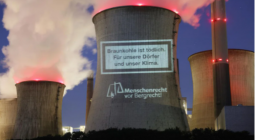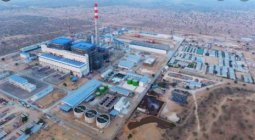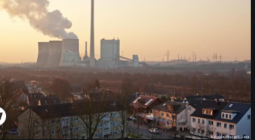Proposal for largest coal project in NSW withdrawn after emissions concerns raised
Glencore and Yancoal have withdrawn a proposal for the largest coal mining project in New South Wales from consideration under federal environmental laws after state planning officials raised concerns about the development’s greenhouse gas emissions.
The Hunter Valley Operations (HVO) expansion would have extended the life of two mines in the Hunter region by about 20 years, generating what the state’s Environment Protection Authority described as “significant unabated GHG emissions”.
Both the NSW and federal governments were required to make a decision about whether the expansion could proceed. Hunter Valley Operations, a Glencore and Yancoal joint venture, withdrew its federal proposal this month after state planners flagged the project’s methane emissions and sought additional information.
Methane, a gas responsible for about half of the global heating experienced, has about 80 times the warming power of CO2 in the first 20 years after it reaches the atmosphere.
The company has indicated it will seek to provide the additional information before resubmitting its plans.
The project was estimated to cause about 23m tonnes of direct emissions and a further 1.2bn tonnes of indirect emissions once the coal was sold and burned.
Carmel Flint, national coordinator at the Lock the Gate Alliance, commended the action taken by the state planning department.
“This is significant because it’s the first time, that we’re aware of, that a government has asked a company to reconsider its plans because of the emissions,” Flint said.
“It’s very positive to see a government finally applying climate targets to the coal-mining sector in this way.”
In July, the NSW planning department wrote to HVO about the state’s legislated climate targets and projections that showed NSW was not on track to meet a 50% reduction on 2005 levels by 2030 or a 70% reduction on 2005 levels by 2035. The state has a target to be net zero by 2050.
The department noted the development would cause high levels of fugitive emissions of methane in the 2040s at a time when greenhouse gas pollution was required to have “ratcheted down significantly” to meet the net zero target.
In its letter, the department asked HVO to consider both the practical and financial implications of “avoiding all coal extraction” from Mining Domain 1 – the area of the mine site that would be active at that time.
“Pending this review, it may be appropriate to then request and submit an amended application incorporating a revised mine plan,” the letter says.
Flint said the withdrawal of the federal proposal “underscores that this was an ill-conceived project from the outset”.
The withdrawal means that a legal challenge by the community group Hunter Environment Lobby (HEL) has been discontinued.
“We are delighted that HVO has walked away without a fight, but we know they’ll be back,” HEL’s spokesperson Jan Davis said.
“And when they are, we’ll be waiting for them.”
Steve Phillips from the group Hunter Renewal said communities in the Hunter had been calling for a “region-wide plan for our economy and our landscape post-coal for years”.
“And this is becoming more and more urgent but has still not been done,” he said.
“The withdrawal today is a reminder the world is shifting away from coal because it is damaging our climate and support is needed for communities and workers to prepare for these structural changes.”
HVO’s general manager, Dave Foster, said the company was planning to continue with the project.
“We are undertaking additional modelling and mine planning to provide this information,” he said.
Foster said the company had withdrawn its federal application “until we can supply this information and consider any impact on the referrals under the EPBC [Environment Protection and Biodiversity Conservation] Act”.
He said HVO would also seek a short-term extension from the NSW government to allow ongoing mining within the currently approved mine area.
Cover photo: By The Guardian





